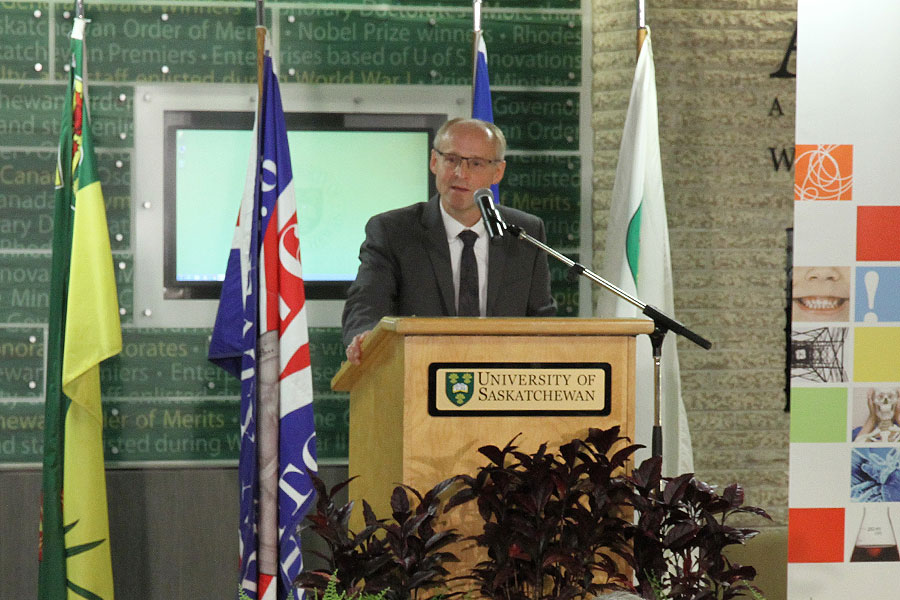
Major NSERC grants nurture new research
Climate change research may not be what first comes to mind when discussing the field of mechanical engineering.
By James ShewagaBut as global temperatures rise, so too does the world-wide demand for more energy-efficient cooling systems. That is where University of Saskatchewan mechanical engineers like Carey Simonson come in.
Backed by $423,465 in federal grants from the (NSERC), the U of S researcher will be studying ways to improve energy efficiency of heating, ventilation and air conditioning systems—commonly known as HVAC units.
“There are many people around the world working on improving the energy efficiency of HVAC systems and my research here at the University of Saskatchewan is unique, but it certainly is part of the global enterprise,” said Simonson, who is one of 60 U of S faculty members and 27 graduate students and post-doctoral fellows who were awarded a total of $10.7 million in NSERC research funding last month.
The major funding announcement was made on campus by Kate Young, Parliamentary Secretary to Science Minister Kirsty Duncan, part of a renewed federal commitment to fostering new research all across the country, including significant support for U of S initiatives.
“This major investment advances research in fundamental, high-quality science that is vital to building Canada’s economic future and training the next generation of leaders,” said Karen Chad, U of S vice-president of research.
For his part, Simonson will lead efforts to combat climate change at home and in the workplace from an engineering perspective. Simonson notes that Canadians spend 90 per cent of their time indoors, with heating and cooling of homes and buildings accounting for up to 50 per cent of energy consumption and greenhouse gas emissions in developed countries. With rising temperatures, that consumption and demand continues to rise dramatically.
“The Intergovernmental Panel on Climate Change predicts that the global demand for cooling in buildings will increase 30 times over this century and that’s due to climate change, but also due to increasing demand from developing countries,” he said. “Temperatures are rising, but there is also a global demand for cooling for food security reasons as well. And as engineers, we need to come up with ways to do that, without intensive energy consumption.”
Simonson’s work on energy efficiency continues a history of nearly a century of research at the U of S, with the new NSERC funding building on that legacy.
“With respect to (applications for NSERC) Discovery grants alone, we have achieved record success this year, an almost 70 per cent success rate, our highest ever, up from about 54 per cent four years ago,” said U of S President Peter Stoicheff, noting that the university has exceeded the national success rate of 64 per cent for landing NSERC Discovery grants.
“This is exactly the direction that we want to go. We are seeing continuing increases in the numbers of U of S faculty holding NSERC funding, which is highly encouraging.”
Simonson said the NSERC grants not only help fund research, but also help recruit and retain top students from around the world, who in turn help enhance Canadian innovation in the workforce.
“Three quarters of my (graduate) students come from other countries but most, about 85 per cent, remain in Canada after training,” he said. “These students are our future leaders and they will make Canada a better place.”

